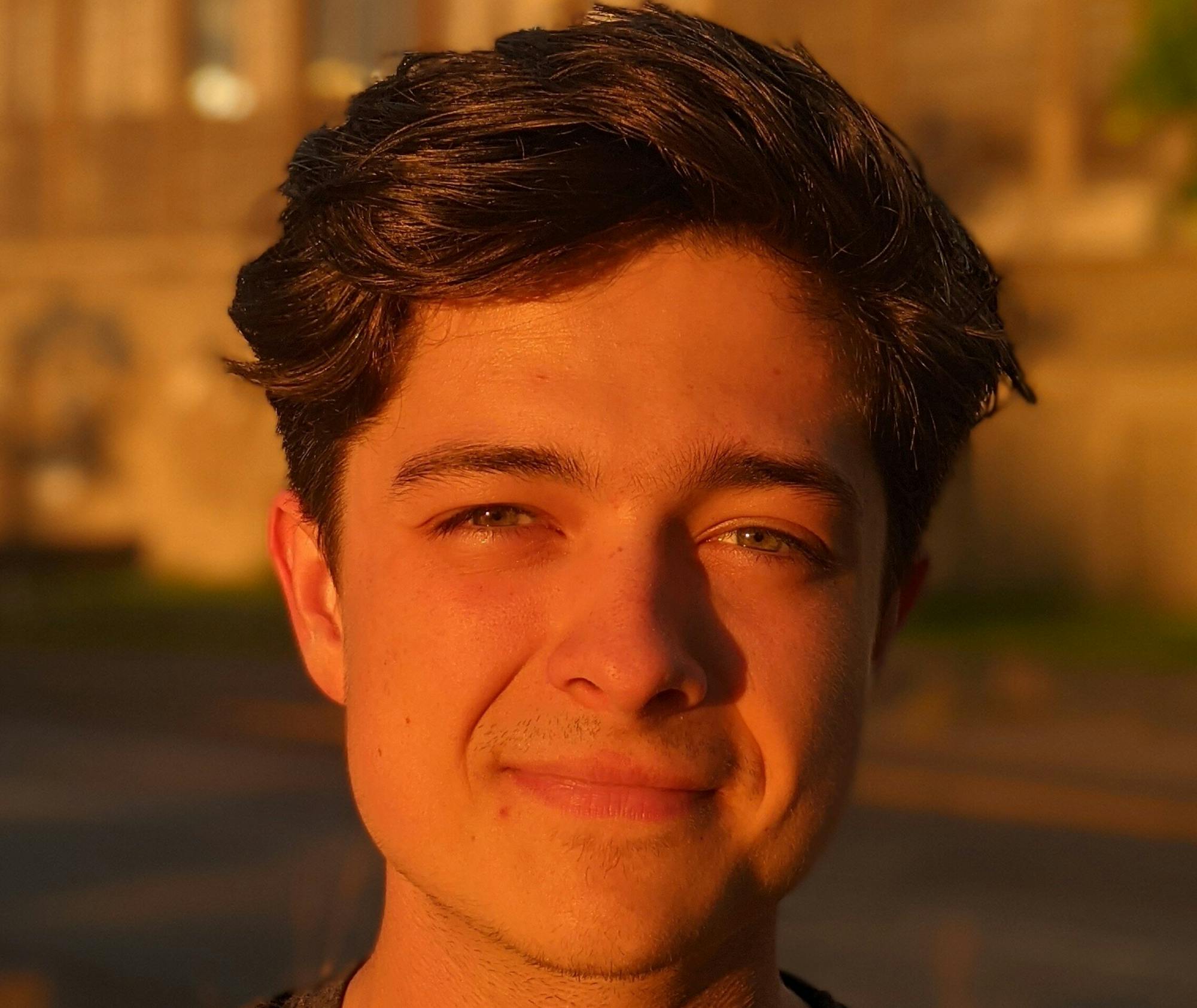On April 12, Gavin Fry ’25 won a Truman Scholarship for his research on severe weather. Fry was among 60 scholarship recipients selected from a field of 709 candidates, according to the Truman Scholarship Foundation website. Each recipient receives $30,000 to pursue “graduate studies, leadership training, career counseling and special internship and fellowship opportunities within the federal government,” according to the website.
Fry — who is pursuing a self-designed climate system science major at Dartmouth — is currently conducting research about severe weather preparedness in the mid-South, he said. The Dartmouth sat down with Fry to discuss his background, research and future plans.
How did you react when College President Sian Leah Beilock informed you that you had won the Truman Scholarship?
GF: It was an honor to get a phone call from the President of the College. It was also another way of reminding myself that I’m pursuing the right things. It has only solidified my passion and my determination to pursue a career in public service. Getting that phone call was the cherry on top for me to have even more motivation going forward.
Could you describe your research?
GF: Up until now, my research has mostly been data analysis and literature reviews to generally understand the problem of social vulnerabilities and severe weather.
This summer, I’m going to be doing research with the National Weather Service. I will be doing a ground-level sociological research project in Alabama, which is a state that is very vulnerable to severe weather. I will have the opportunity to go around and speak with certain individuals about how they get their weather information, how it’s communicated to them and how they interpret those weather warnings and emergency communications. With that information, we will hopefully be able to better understand how to communicate weather information. That will be my first foray into that ground-level, face-to-face, real-world research.
How do you plan on utilizing the funding provided by the scholarship? What are your long-term plans more broadly?
GF: You can defer the Truman Scholarship for up to four years. Once I graduate from Dartmouth, I would like to get some real-world experience by going out there and working in the National Weather Service or Federal Emergency Management Agency for a couple of years. Then, I plan to utilize the Truman Scholarship to probably pursue a Ph.D in meteorology. As of now, I plan on attending the University of Oklahoma. They have a wonderful meteorology program that includes so many different disciplines within meteorology itself. The Truman Scholarship will help make a Ph.D happen.
What inspired you to pursue a career in meteorology?
GF: That passion has sort of always been instilled in me. I’ve always been a so-called weather geek, and I’m proud of that. I think it’s just something that I was born with, but it wasn’t until the later years of high school and the beginning of college that I started to view this as a career. That was because I started to view weather and climate science through the lens of people. I came to the realization that weather affects everybody unequally.
How has growing up in the rural South affected your understanding of severe weather and your work in meteorology?
GF: I was exposed to all types of weather: winter storms, ice storms, tornadoes and severe weather — the latter of which eventually became my passion. Growing up where I did also opened my eyes to the social aspect of things and the vulnerabilities associated with severe weather. People who live in mobile homes — as I did growing up — are much more vulnerable to severe storms than somebody who lives in a residential neighborhood with a well-built home. This issue is personal to me, and growing up in the mid-South and in poverty allowed me to see weather not only through the physical perspective, but also through the societal lens that eventually shaped my mindset going into academia.
What does the climate system science major entail, and how has it aided you in your research?
GF: I came into Dartmouth knowing that it didn’t have a climate science major or a meteorology major. I have a great relationship with professors Erich Osterberg in the earth sciences department and Melody Burkins in the environmental studies department, and I worked with them to pull together classes from earth sciences, geography, environmental studies, physics, math and even public policy to bring together this interdisciplinary yet cohesive course of study. It was easy for me to take advantage of these resources and talk with experts like professors Osterberg and Burkins. They offered their mentorship and guidance and helped me put together a proposal for a major that not only suits my intellectual curiosity but suits my career path as well.
How do you foresee the field of meteorology evolving in the future?
GF: I think that weather forecasts and weather models have a great opportunity to be improved. But with that said, I think there’s always going to be a need for people in this field that are able to communicate weather-related emergencies and climate emergencies effectively. In order for us to alleviate the inequalities that already exist, we’re going to have to call up the next generation of leaders.
We need people that are able to assume these positions and go a little bit deeper. We’re going to need people who can view things from an interdisciplinary perspective, and I think Dartmouth has been a great asset because it has given me a liberal arts education. With the climate science major, Dartmouth gave me the physical science background, a sociological background and everything in between. To tackle these problems with inequalities and climate change in the United States, we’re going to need to call up a different type of leadership and a multidisciplinary cohort from the next generation.
This interview has been edited for clarity and length.




